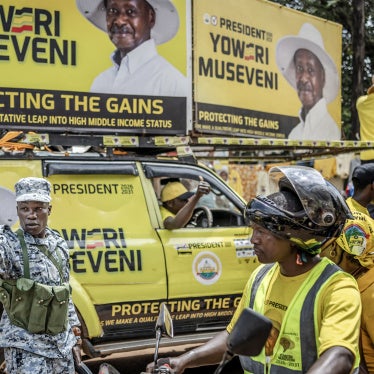Despite the withdrawal of the charges on Sunday by South Africa’s National Prosecuting Authority (NPA) to charge 270 arrested mine workers for the killings of their colleagues, the initial decision to charge them in respect of the doctrine of common purpose is a perverse application of the law and that may have had the consequence of exacerbating tensions at Lonmin Mine in Marikana, North Western Province.
The tragic scenes of August 16, 2012, when police opened fire and killed 34 miners who were part of a group protesting against low wages, sent shockwaves throughout the world. Many reacted with horror at a display of police force that was reminiscent of apartheid South Africa.
Irrespective of what the Judicial Commission of Inquiry - established by President Zuma to investigate the killings and those responsible - may find once it conducts its investigation, there can be no doubt that the actions of the police can at best be described as extremely heavy handed.
While police may have overreacted, what happened in Marikana was a result of a Molotov cocktail of extremely angry miners (many of whom were armed with machetes and spears), a recalcitrant employer that seemed reluctant to negotiate to resolve the labour dispute, and an absent political and union leadership.
As a result of the killings and cognizant of the broader context in which the killings occurred, Human Rights Watch called on the South African government to ensure that the Commission is established speedily and for its terms of reference to include a fact-finding mission on the background and underlying events leading to the violence in Marikana.
It is a perversion of the doctrine to suggest that whatever common crime it is alleged the miners were pursuing, that the killing of their colleagues by the police was a foreseeable outcome on their part of achieving that goal.
The creation of the Judicial Commission of Inquiry and the appointment of retired Judge Farlam to head it, is therefore a welcome step. Farlam is a highly respected judge who served many years on the Supreme Court of Appeal. The Commission will have four months in which to conduct its investigation and to submit its final report a month thereafter.
However, the actions by the NPA to add the doctrine of common purpose to the initial charge of public violence could have undone all the good efforts to address the situation. According to the doctrine, where two or more people agree to commit a crime or actively associate in a joint unlawful enterprise, each will be responsible for specific criminal conduct committed by one of their number which falls within their common design.
In other words, there was a common purpose to commit a crime. It is a perversion of the doctrine to suggest that whatever common crime it is alleged the miners were pursuing, that the killing of their colleagues by the police was a foreseeable outcome on their part of achieving that goal.
This nonsensical decision by the NPA to charge the miners in this manner may have led many to conclude that these charges were politically motivated and an attempt to prevent further protests.
The terms of reference of the Judicial Commission of Inquiry include an investigation of all the parties involved and mandate the Commission to refer any matter regarding the conduct of any person or group for prosecution. In addition, the South Africa’s Independent Police Investigative Directorate (IPID) has also initiated an investigation into the conduct of the police that led to the tragedy.
It is therefore very worrisome that there is very little complementarity between these investigations. As the Judicial Commission of Inquiry has been specifically established to conduct an independent and impartial investigation, it is more prudent for entities to work collaboratively with the Commission.
The decision by the NPA to charge the miners in terms of the doctrine of common purpose seems shortsighted for at least three reasons: Firstly, in the context of the establishment of the Judicial Commission of Inquiry, it should await the results and recommendations of the investigation before deciding the appropriate course of action.
Secondly, the requirement of active association upon which it seems to rely is a misapplication of the doctrine which could lead to the unintended consequence of limiting human rights in other contexts. Lastly, its decision could have exacerbated the already tense situation and set off another Molotov cocktail.
Cameron Jacobs is the South Africa Director at Human Rights Watch







